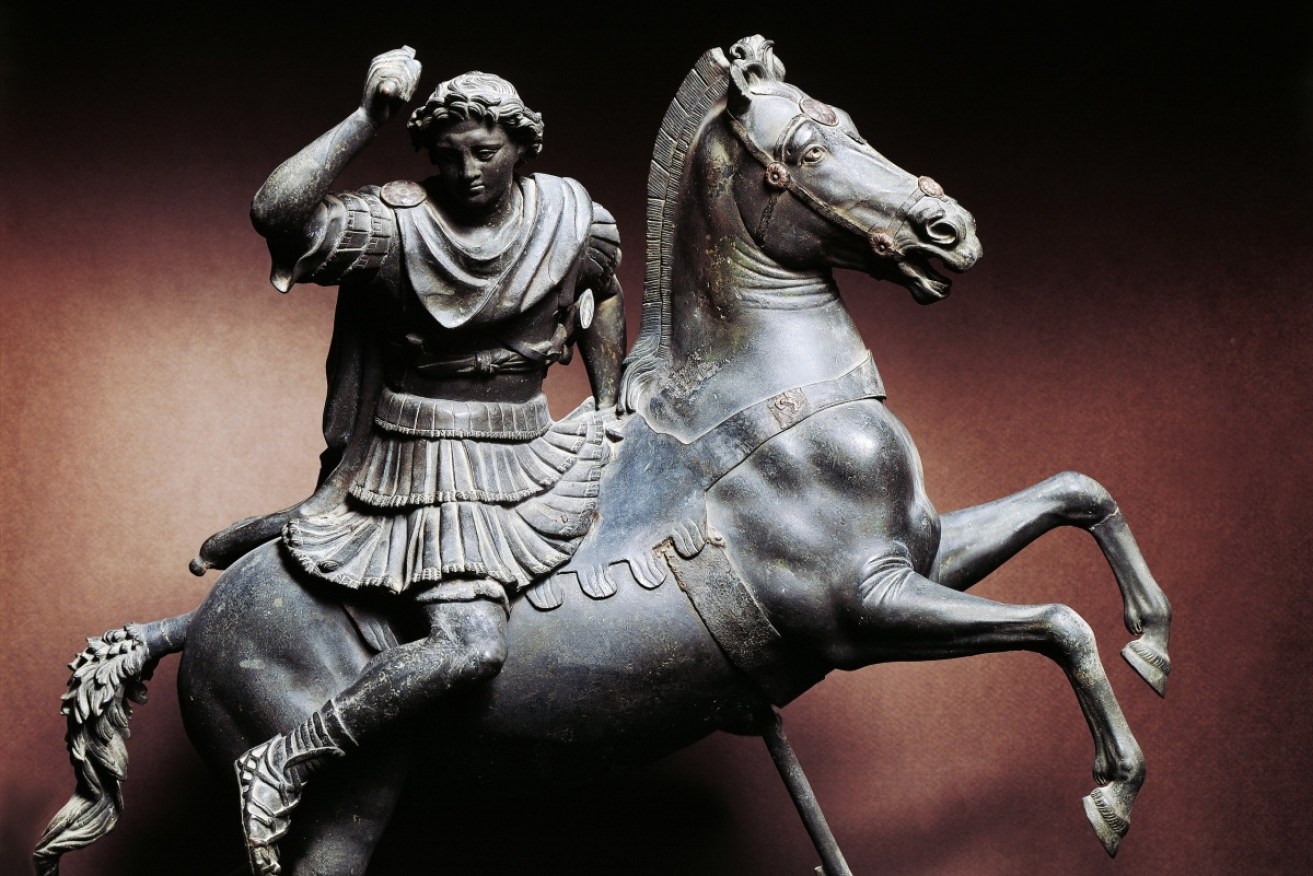Egyptian sarcophagus reveals a family – not Alexander the Great and fears of ancient curse


Alexander the Great was a Macedonian king who created one of the largest empires of the ancient world. Photo: Getty
An ancient Egyptian sarcophagus widely thought to contain the remains of Alexander the Great has been opened to much fanfare – only to reveal the mummies of what may be a family of three.
The discovery of the 30-tonne black granite sealed sarcophagus, uncovered earlier this month during the construction of an apartment building in Alexandria, fuelled speculation the tomb contained the bones of the ancient king Alexander III of Macedon.
There were also widespread fears that once the sarcophagus was opened, it would unleash a 1000-year curse.
It didn’t.
Mostafa Waziri, secretary-general of the Supreme Council of Antiquities, braved the sarcophagus and he is still alive.
“We’ve opened it and, thank God, the world has not fallen into darkness,” Mr Waziri said.
“I was the first to put my whole head inside the sarcophagus… and here I stand before you … I am fine.”
Mr Waziri had earlier vigorously dismissed the swirling theories that the tomb contained Alexander the Great.
On Thursday (local time), he confirmed to reporters at the site: “We found the bones of three people in what looks like a family burial.
“Unfortunately the mummies inside were not in the best condition and only the bones remain.”

Workers carefully extract the sarcophagus found in the Sidi Gaber district of Alexandria.
Mr Waziri said some of the remains had disintegrated because sewage water from a nearby building had leaked into the sarcophagus through a small crack in one of the side
The sarcophagus is the latest of a series of archaeological finds in Egypt that include a 4400-year-old tomb in Giza and an ancient necropolis in Minya, south of Cairo, Reuter reported.
The unmarked tomb in Alexandria did not likely belong to any other notable ruler in the Ptolemaic period (332 BC-30 BC) associated with Alexander the Great, or the subsequent Roman era, according to Reuters.
The location of the remains of Alexander the Great, who died in 323 BC in Babylon reportedly from malaria, remains a mystery.
According to Egypt’s Ministry of Antiquities Facebook page, the remains are most likely those of three soldiers rather than a family.
Shaaban Abdul, who specialises in the study of mummies and skeletons, said an examination of their bone structures suggested they were “most likely to belong to three officers or military soldiers”.
One was most likely killed by an arrow.
He said the mummies will be transferred to the museum of Alexandria’s National Restoration Museum where experts will continue their investigation into how old they are and a cause of death.








